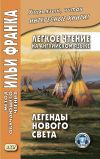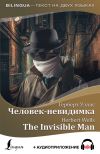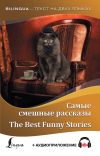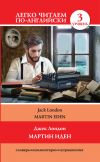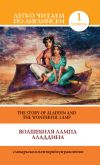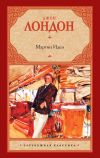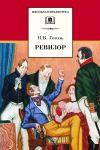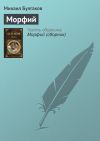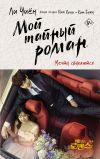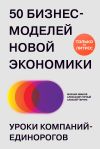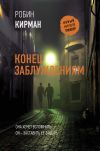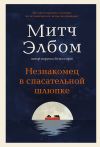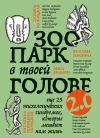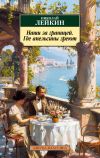Текст книги "Мартин Иден / Martin Eden (+ аудиоприложение LECTA)"
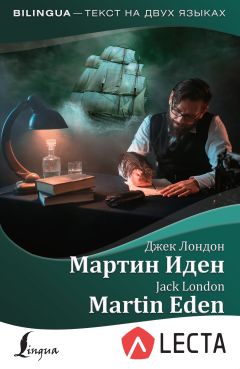
Автор книги: Джек Лондон
Жанр: Иностранные языки, Наука и Образование
Возрастные ограничения: +12
сообщить о неприемлемом содержимом
Текущая страница: 5 (всего у книги 15 страниц) [доступный отрывок для чтения: 5 страниц]
Chapter 27
On a beautiful autumn day, Martin read his “Love-cycle” to Ruth. It was in the afternoon. Now and again she had interrupted his reading with exclamations of pleasure, and he waited her judgment.
She delayed to speak, and at last she spoke.
“I think they are beautiful, very beautiful,” she said; “but you can’t sell them, can you? You see what I mean,” she said. “This is not practical. And please, dear, don’t misunderstand me. They do not make our marriage possible. Don’t you see, Martin? Don’t think me mercenary. A whole year has gone by since we learned we loved each other, and our wedding day is no nearer. Why don’t you try to get work on a newspaper? Why not become a reporter? – for a while, at least?”
“It would spoil my style,” was his answer, in a low, monotonous voice. “You have no idea how I’ve worked for style.”
“But those stories,” she argued. “You wrote many of them. Didn’t they spoil your style?”
“No, the cases are different. To become a reporter now, just as my style is taking form, crystallizing, would be to commit literary suicide. The joy of writing the ‘Love-cycle’! The creative joy in its noblest form! That was compensation for everything.”
“But, Martin, if you fail? You must consider me as well, Martin.”
“If I fail? If I fail, I shall become an editor, and you will be an editor’s wife.”
“There, that’s enough, I have talked with father and mother. I was very undutiful. They are against you, you know; but at last father agreed that if you wanted to, you could begin right away in his office. Which I think was very fine of him – don’t you?”
“You want me to go to work?” he asked.
“Yes. Father has offered – “
“I understand all that,” he said; “but what I want to know is whether or not you have lost faith in me?”
She pressed his hand.
“You’ve read my stories,” he went on brutally. “What do you think of them? Are they hopeless? How do they compare with other men’s work?”
“But they sell theirs, and you – don’t.”
“That doesn’t answer my question. Do you think that literature is not at all my vocation?”
“Then I will answer. I don’t think you were made to write. Forgive me, dear.”
“Yes, you are a Bachelor of Arts,” he said meditatively; “and you know. But I know I shall succeed. What I do ask of you is to love me and have faith in love. I sleep four hours now. I work, and work, and work. Why do I do this? For you. Long ago I wanted to be famous. I don’t care for fame now. What I want is you; I am more hungry for you than for food, or clothing, or recognition.”
“And another thing,” he continued. “You love me. But why do you love me? You love me because I am somehow different from the men you have known. I was not made for the desk and counting-house, and for business. My desire to write is the most vital thing in me.”
Ruth warned him again of the antagonism of her father and mother.
“But you love me?” he asked.
“I do! I do!” she cried.
“And I love you, not them, and they can’t hurt me.” Triumph sounded in his voice.
Chapter 28
One day after dinner Martin met Russ Brissenden. Whose friend he was or what acquaintance brought him, Martin did not know. He almost forgot about Brissenden, but one day they saw each other again.
“Let’s have a drink,” offered his new friend, and Martin agreed. Soon Brissenden and he lounged in capacious leather chairs and drank Scotch and soda.
They talked. They talked about many things. Martin was excited: here was an intelligence, a living man for him to look up to. “I wish I could gather knowledge as carelessly,” Martin said half an hour later.
“Oh, no,” Brissenden replied. “Fate sent me to a Catholic college for my education”. “But I’m very sick,” Brissenden announced a little later, and stated that he came from Arizona.
“You don’t like magazines?” Martin asked.
“Do you?”
“I – I write, or, rather, try to write, for the magazines,” Martin faltered.
“That’s better. You try to write, but you don’t succeed. I respect and admire your failure. I know what you write. Why, man, I could insult you by asking you to have something to eat.”
Martin felt the heat in his face of the blood, and Brissenden laughed triumphantly.
“A full man is not insulted by such an invitation,” he concluded.
“You are a devil,” Martin cried irritably.
“Anyway, I didn’t ask you.”
“You didn’t dare.”
“Oh, I don’t know about that. I invite you now. Then let’s go and get something to eat.”
Chapter 29
Promptly, the next afternoon, Maria was excited by Martin’s visitor.
“I hope you are glad to see me?” Brissenden began.
“Yes, yes, sure,” Martin answered, shaking hands and waving him to the solitary chair. “But how did you know where I lived?”
“I called up the Morses. Miss Morse answered the phone. And here I am.” He put a thin volume on the table. “There’s a book, by a poet. Read it and keep it.” And then, in reply to Martin’s protest: “What have I to do with books? I had another hemorrhage this morning. Got any whiskey? No, of course not. Wait a minute.”
He went away. Martin opened the book of verse, Henry Vaughn Marlow’s latest collection.
“No Scotch,” Brissenden announced on his return. “Only American whiskey.”
“I wonder what a book like that will earn Marlow?” Martin went on.
“Possibly fifty dollars,” came the answer. Brissenden began to laugh, but terrible cough stopped him.
“Say, you probably write poetry,” he gasped. “Let me see some of it.”
“Don’t read it now,” Martin pleaded. “I want to talk with you. You can take it home.”
Brissenden departed with the “Love-cycle,” and “The Peri and the Pearl,” returning next day to greet Martin with:
“I want more.”
He assured Martin that he was a poet, and Martin learned that Brissenden also wrote poems. But he did not attempt to publish it.
“Leave the magazines alone!” was Brissenden’s answer. “Love beauty for its own sake,” was his counsel, “and go back to your ships and your sea – that’s my advice to you, Martin Eden. What do you want in these sick and rotten cities of men? Fame is poison to you. You are too simple, too elemental, and too rational, by my faith, to prosper on here. I hope you never sell a line to the magazines. Beauty is the only master to serve. Leave fame and coin alone, sign away on a ship tomorrow, and go back to your sea.”
“Not for fame, but for love,” Martin laughed. “Beauty is the maiden of Love.”
Brissenden looked at him. “You are so young, Martin boy, so young. Your ‘Love-cycle’ – ”
“It glorifies love,” Martin laughed.
“The philosophy of madness,” was the retort. “But beware. These bourgeois cities will kill you. Look at that den of traitors where I met you. What do you want with a daughter of the bourgeoisie? Leave them alone.”
They disagreed about love, and the magazines, and many things, but they liked each other. Day after day they were together. Brissenden never arrived without his quart of whiskey, and when they dined together down-town, he drank Scotch and soda throughout the meal. He paid for both, and Martin learned new food, drank his first champagne, and made acquaintance with new wines.
But Brissenden was always an enigma. With the face of an ascetic, he was unafraid to die, bitter and cynical; and yet, dying, he loved life, to the last atom of it. Who or what he was, Martin never learned. He was a man without a past, whose future was the grave and whose present was a bitter fever of living.
Chapter 30
Martin was steadily losing his battle. He brought his black suit in pawn and was unable to accept the Morses’ invitation to dinner. He told Ruth that he would go to San Francisco, to the TRANSCONTINENTAL office, collect the five dollars due him, and with it redeem his suit of clothes.
In the morning he borrowed ten cents from Maria. Brissenden disappeared. Two weeks had passed since Martin had seen him. The ten cents carried Martin across the ferry to San Francisco.
The door to the TRANSCONTINENTAL office was ajar.
“I – I am Martin Eden,” Martin began the conversation. (“And I want my five dollars,” he wanted to say.)
But Mr. Ford, the editor, leaped into the air with a “You don’t say so!” and the next moment, with both hands, was shaking Martin’s hand effusively.
“Can’t say how glad I am to see you, Mr. Eden. Your story, you know, showed such breadth, and vigor, such depth of thought. A masterpiece, that story – I knew it. Let me tell you how I first read it. But no; first let me introduce you to the staff.”
Mr. Ford led him into the general office, where he introduced him to the associate editor, Mr. White, a slender, frail little man whose hand seemed strangely cold.
“And Mr. Ends, Mr. Eden. Mr. Ends is our business manager, you know.”
Martin shook hands with a cranky-eyed, bald-headed man.
The three men surrounded Martin, all talking admiringly.
“We often wondered why you didn’t call,” Mr. White was saying.
“I’ll tell you what I came for,” Martin said finally. “I want my money for that story all of you like so well. Five dollars, I believe, is what you promised me.”
Mr. Ford said that he had left his money home.
“I am sorry,” said Mr. Ends, “but I paid the printer not an hour ago, and he took all my money.”
Both men looked expectantly at Mr. White, but that gentleman laughed and shrugged his shoulders. His conscience was clean.
“It’s rather absurd, Mr. Eden,” Mr. Ford said airily. “But I’ll tell you what we’ll do. We’ll mail you a check in the morning. You have Mr. Eden’s address, haven’t you, Mr. Ends?”
“I need the money today,” Martin answered.
“Mr. Ford has already explained the situation,” Mr. Ends said with asperity. “The check will be mailed – ”
“I also have explained,” Martin said, “and I have explained that I want the money today.”
At that moment, with an impatient movement, Mr. Ends turned as if about to leave the room. At the same instant Martin sprang for him and clutched him by the throat with his hand.
“Dig up!“ Martin exhorted. “Dig up, or I’ll shake it out of you!”
Mr. Ends’s trousers pocket yielded four dollars and fifteen cents.
“Inside out with it!“ Martin commanded.
An additional ten cents fell out.
“You next!” Martin shouted at Mr. Ford. “I want seventy-five cents more.”
Mr. Ford did not wait, but gave him sixty cents.
“What have you got in your vest pockets?” Martin demanded. “What’s that? – A ferry ticket? Here, give it to me. It’s worth ten cents. I’ve now got four dollars and ninety-five cents, including the ticket. Five cents is still due me.”
“Thank you,” Martin said, addressing them collectively. “I wish you a good day.”
“Robber!” Mr. Ends snarled after him.
“Thief!” Martin retorted.
Chapter 31
Ruth climbed Maria’s front steps. She had come to know whether or not he would be at their table for Thanksgiving dinner; but Martin said:
“Here, let me read you this,” he cried. “It’s my latest story, and different from anything I’ve done. You will be my judge. It’s an Hawaiian story. I’ve called it ‘Wiki-wiki.’”
Ruth listened with great attention. Finally he asked: —
“Frankly, what do you think of it?”
“I – I don’t know,” she, answered. “Will it – do you think it will sell?”
“I’m afraid not,” was the confession. “It’s too strong for the magazines. But it’s true.”
“But why do you write such things when you know they won’t sell? The reason for your writing is to make a living, isn’t it?”
“Yes, that’s right; but the story itself demanded to be written.”
“That character, that Wiki-Wiki, why does he talk so roughly? Surely it will offend your readers, and surely that is why the editors will refuse your work.”
“Because the real Wiki-Wiki talks that way.”
“But it is not good taste.”
“It is life,” he replied bluntly. “It is real. It is true. And I must write life as I see it.”
She made no answer, and for an awkward moment they sat silent.
“Well, I’ve taken money from the TRANSCONTINENTAL,” he said.
“Then you’ll come!” she cried joyously.
“Come?” he muttered absently. “Where?”
“Why, to dinner tomorrow. You know you said you’d recover your suit if you got that money.”
“I forgot about it,” he said humbly. “You see, this morning the policeman got Maria’s two cows and the baby calf, and – well, it happened that Maria didn’t have any money, and so I had to recover her cows for her. That’s where the TRANSCONTINENTAL money went – ‘The Ring of Bells’ went into the policeman’s pocket.”
“Then you won’t come?”
He looked down at his clothing.
“I can’t.”
Tears of disappointment and reproach glistened in her blue eyes, but she said nothing.
“Next Thanksgiving you’ll have dinner with me in London,” he said cheerily; “or in Paris, or anywhere you wish. I know it.”
“Oh,” was all she said, when he finished. She stood up, pulling at her gloves. “I must go, Martin. Arthur is waiting for me.”
He took her in his arms and kissed her. Her arms did not go around him.
She was angry with him, he concluded, as he returned from the gate. But why? It was unfortunate that the policeman had taken Maria’s cows. Nobody could be blamed for it.
Nobody understood him, nobody, except Brissenden, and Brissenden had disappeared, God alone knew where.
At night Martin left the fruit store. At the corner he noticed the familiar figure, and his heart leapt with joy. It was Brissenden–with books, and with a quart bottle of whiskey.
Chapter 32
Brissenden gave no explanation of his long absence.
“I was not idle,” Brissenden proclaimed.
He pulled a manuscript from his inside coat pocket and passed it to Martin, who looked at the title and glanced up curiously.
“Yes, that’s it,” Brissenden laughed. “Pretty good title, eh? ‘Ephemera’ – it is the one word. It got into my head and I had to write it. Tell me what you think of it.”
Martin’s face, flushed at first, paled as he read on. It was perfect art. It was a long poem of six or seven hundred lines, and it was a fantastic, amazing, unearthly thing. It was terrific, impossible! It was a mad orgy of imagination, playing in the skull of a dying man.
“There is nothing like it in literature,” Martin said, when at last he was able to speak. “It’s wonderful! – wonderful! I am drunken with it. You are – I don’t know what you are – you are wonderful, that’s all. But how do you do it? How do you do it?
“I shall never write again. You have shown me the work of the real artist. Genius! This is something more than genius. It transcends genius. And now I won’t say another word. I am overwhelmed, crushed. Let me try to publish it.”
Brissenden grinned. “Nobody would dare to publish it – you know that.”
“I know nothing. That’s not a poem of the year. It’s the poem of the century.”
“No, it’s mine. I made it, and I’ve shared it with you.”
“But think of the rest of the world,” Martin protested.
“It’s my beauty.”
“Don’t be selfish.”
“Please type it for me,” said Brissenden. “And now I want to give you some advice.” He drew a bulky manuscript from his outside coat pocket. “Here’s your ‘Shame of the Sun.’ I’ve read it not once, but twice and three times – the highest compliment I can pay you. After what you’ve said about ‘Ephemera’ I must be silent. But this I will say: when ‘The Shame of the Sun’ is published, it will make a hit. Offer it to the first-class publishing houses. You’ve read the books. One day Martin Eden will be famous because of that work. So you must get a publisher for it – the sooner the better.”
Brissenden went home late that night; and just as he mounted the first step of the car, he suddenly gave Martin a small piece of paper.
“Here, take this,” he said.
Martin unrolled the paper and found a hundred-dollar bill.
He was not very surprised. He knew his friend had always plenty of money. In the morning he paid every bill, gave Maria three months’ advance on the room, and redeemed everything at the pawnshop. Next he bought presents for Ruth and Gertrude. Moreover, he bought Maria’s children many toys.
Chapter 33
“Come on, – I’ll show you the real people,” Brissenden said to Martin, one evening in January.
They had dined together in San Francisco, and were at the Ferry Building, returning to Oakland, when the idea came to him to show Martin the “real people.” “Maybe nobody will be there,” Brissenden said, when they came into the heart of the working-class ghetto, south of Market Street.
“Men, intelligent men. You read the books and you found yourself all alone. Well, I’m going to show you tonight some other men who’ve read the books, so that you won’t be lonely any more.
“I’m not interested in book philosophy. But you’ll find these fellows intelligences and not bourgeois swine.
“I hope Norton’s there. Norton’s an idealist – a Harvard man. Prodigious memory. Idealism led him to philosophic anarchy, and his family threw him off.”
Martin had no idea where they were going.
“I hope Hamilton’s there.” Brissenden said. “He is a clerk, or he is trying to be a clerk, in a socialist cooperative store for six dollars a week. He was a Spencerian like you till Kreis turned him to materialistic view.”
“Who is Kreis?” Martin asked.
“A professor – fired from university – usual story. I know he’s been a street fakir. Difference between him – and the bourgeoisie is that he robs without illusion. He’ll talk Nietzsche, or Schopenhauer, or Kant, or anything, but the only thing in this world that he really cares for, is his monism.”
They came to the usual two-story corner building. “The gang lives here – come on.”
Brissenden stopped to speak to Martin.
“There’s one fellow – Stevens – a theosophist. Just now he’s dish-washer in a restaurant. Likes a good cigar. I’ve got a couple in my pocket for him.”
“And there’s another fellow – Parry – an Australian, a statistician and a sporting encyclopaedia.”
Brissenden advanced through the darkness. A knock and an answer opened it, and Martin saw Kreis, a handsome brunette man, with dazzling white teeth, black moustache, and large eyes.
“We’re lucky that most of them are here,” Brissenden whispered to Martin. “There’s Norton and Hamilton; come on and meet them.”
They were men with opinions, they were witty and clever, they were not superficial. Never had Martin, at the Morses’, heard so amazing a range of topics discussed. The talk wandered from Mrs. Humphry Ward’s new book to Shaw’s latest play…
But it was time to catch the last ferry-boat for Oakland, and Brissenden and Martin went out.
“You showed me a fairyland,” Martin said on the ferry-boat. “It makes life worth while to meet people like that. I never appreciated idealism before. Yet I can’t accept it. I know that I shall always be a realist. I see I must read some more.”
Chapter 34
The first thing Martin did next morning was to mail “The Shame of the Sun” to THE ACROPOLIS. “Ephemera” he likewise wrapped and mailed to a magazine.
Martin began, that morning, a sea story, a tale of twentieth-century adventure and romance.
He was conscious that it was great stuff he was writing. “It will go! It will go!” was the refrain that was sounding in his ears. Of course it would go. He toiled on all day, recollecting, at the last moment, that he was invited to have dinner at the Morses’. Thanks to Brissenden, his black suit was out of pawn and he was again eligible for dinner parties. “Bourgeois,” “traders” – Brissenden’s words repeated themselves in his mind. But what of that? he demanded angrily. He was marrying Ruth, not her family.
It seemed to him that he had never seen Ruth more beautiful, more spiritual and ethereal and at the same time more healthy. There was color in her cheeks, and her eyes drew him again and again. He saw love there. And in his own eyes was love, too.
The half hour he had with her left him supremely happy and supremely satisfied with life.
Across the table from him, at Mr. Morse’s right, sat Judge Blount. He and Ruth’s father were discussing labor union politics, the local situation, and socialism. At last Judge Blount looked across the table with benignant and fatherly pity. Martin smiled to himself.
“You’ll grow out of it, young man,” he said. “Time is the best cure for such youthful distempers.” He turned to Mr. Morse. “I do not believe discussion is good in such cases. It makes the patient obstinate.”
“That is true,” the other assented gravely. “But it is well to warn the patient occasionally of his condition.”
Martin laughed merrily, but it was with an effort.
“Undoubtedly you are both excellent doctors,” he said; “but you are poor diagnosticians. In fact, you are both suffering from the disease you think you find in me. As for me, the socialist philosophy has passed me by.”
“My young man – ”
“Remember, I’ve heard your campaign speeches,” Martin said. “They are socialistic.
When I was younger, – a few months younger, – I believed the same thing. You see, the ideas of you and yours had impressed me. But merchants and traders are cowardly rulers. Nietzsche was right. I won’t take the time to tell you who Nietzsche was, but he was right. The world belongs to the strong – to the strong who are noble. The world belongs to the true noblemen, to the noncompromisers. And they will eat you up, you socialists – who are afraid of socialism and who think yourselves individualists.”
He turned to Ruth.
“I’m tired today,” he said. “All I want to do is to love, not talk.”
“There is no god but the Unknowable, and Herbert Spencer is its prophet,” Judge Blount was saying at that moment.
Martin turned upon him.
“A cheap judgment,” he remarked quietly. “I heard it first in the City Hall Park. I have heard it often since. You ought to be ashamed of yourself. You are disgusting.”
It was like a thunderbolt. Silence reigned. Mr. Morse was secretly pleased. He could see that his daughter was shocked. It was what he wanted to do.
Judge Blount attempted to go on.
“You can’t discuss Spencer with me,” Martin cried. “You do not know anything about Spencer. But it is no fault of yours. It is because of the contemptible ignorance!”
Martin ceased abruptly, in a dead silence. Everybody in Ruth’s family looked up to Judge Blount as a man of power and achievement. The remainder of the dinner passed like a funeral. Then afterward, when Ruth and Martin were alone, there was a scene.
“You are unbearable,” she wept.
But his anger was still going on, and he muttered, “The beasts! The beasts!”
When she said that he had insulted the judge, he retorted: —
“I told him the truth!”
“I don’t care whether it was true or not,” she insisted. “You have no license to insult anybody.”
“Then where did Judge Blount get the license to assault truth?” Martin demanded. “He did worse than that. He blackened the name of a great, noble man who is dead. Oh, the beasts! The beasts!”
Внимание! Это не конец книги.
Если начало книги вам понравилось, то полную версию можно приобрести у нашего партнёра - распространителя легального контента. Поддержите автора!Правообладателям!
Данное произведение размещено по согласованию с ООО "ЛитРес" (20% исходного текста). Если размещение книги нарушает чьи-либо права, то сообщите об этом.Читателям!
Оплатили, но не знаете что делать дальше?


